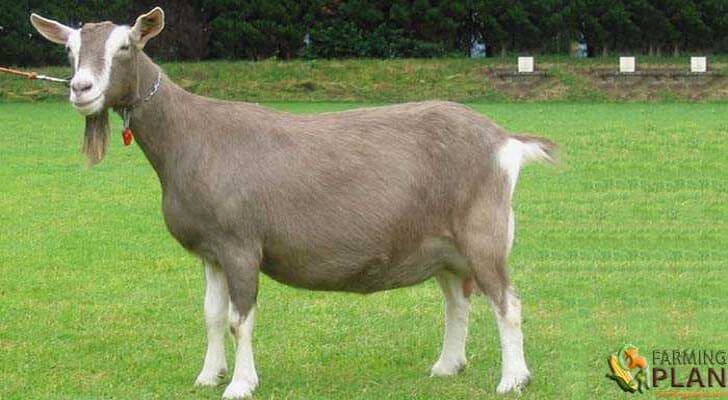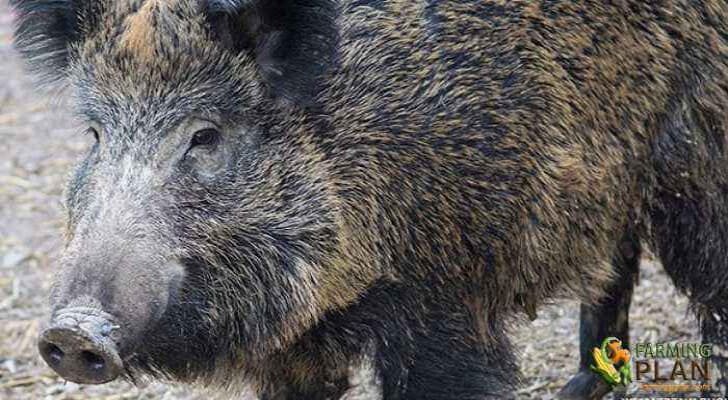Are you looking to raise Algerian sheep? If so, it’s important to know the right nutrition tips for optimal lamb growth. Unfortunately, raising ungulates can be a difficult task if not done properly. To help get you started on your journey of responsibly and sustainably caring for these majestic creatures, let’s dive into essential nutritional needs for Algerian Arab Sheep during the first few months of life. From stomach worms to amino acid balance, here are all the tips you need to keep your new lambs healthy and strong!

History & Origin
The Algerian Arab Sheep is a type of domesticated sheep that originates from Algeria. It has been in existence for hundreds of years, and is believed to have first appeared during the Roman Conquest as a result of cross-breeding with local stock. Their carpet-grade wool is still highly prized today, but they are also bred predominantly for their meat production. The natives in the area have long valued them as an efficient and reliable food source, since they thrive on sparse vegetation. Despite being mainly associated with North African culture, their influence can also be found throughout Europe due to their expansion centuries ago.
Characteristics
Algerian Arab sheep are a sturdy, low-maintenance breed of domesticated sheep found primarily in Algeria. Easily identifiable by their distinctive cream and white wool coats, Algerian Arab sheep are known for their hardy nature, allowing them to thrive in many climates. Typically heavier than other breeds of sheep, this variety also produces a light-to-medium quality carpet-grade wool, though they are more commonly raised for their meat. Tough yet fecund – with some ewes producing up to 10 lambs annually – the Algerian Arab sheep is highly valued by farmers wishing to increase the size of their flocks quickly.
Feed
The Algerian Arab Sheep is a popular breed of domesticated sheep that can be found throughout Algeria. This breed mainly used for their meat, and the wool they produce is divided into two grades: carpet-grade wool and utility wool. Their diet includes a variety of plants, with the most commonly grazed items being weeds, short grasses, succulents and shrubs. Primary sources of nutrition include hay, oats and protein supplements. By providing the Algerian Arab Sheep with quality feed and proper access to pastures, herdsman are able to keep their animals healthy, productive and profitable.
Usage
Algerian Arab sheep have been used for centuries as a source of meat and wool by the people in Algeria. As any farming enthusiast knows, their ability to thrive in their location and climate has made them one of the most sought-after breeds today. They are highly adaptable to a range of climates due to their uniquely engineered fleece that can grow a carpet-grade wool that is then used in textiles and carpets around the world. Furthermore, due to its hardy nature, these animals are outstanding breeders and producers, excellent for any farmer looking for robustness and vitality in their flock.
Special Feature
The Algerian Arab Sheep offers a special feature that makes it one of the most sought-after breeds of domesticated sheep – its carpet-grade wool! Although raised primarily for meat, this breed is highly valued for its superior wool production which can be used in many creative ways. Its long and soft texture creates unique designs and patterns, making it the perfect choice for any custom product. With so many potential uses and benefits, it’s no surprise that the Algerian Arab Sheep has been prized among shepherds for years.
Benefits of Raising Algerian Sheep
Raising Algerian Arab sheep for meat is becoming increasingly popular, and with good reason. It offers many benefits to those working in agricultural industries. Algerian sheep are hearty animals, known for their ability to survive in rough conditions and still produce a high-quality crop of meat. They are also extremely cost-efficient to raise, as they require fewer resources than other breeds of sheep used for the same purpose. This makes them an ideal choice for farmers who wish to invest in livestock that yield great returns without putting too much strain on resources or finances. Furthermore, these sheep can survive on less land and require less maintenance than most other breeds, making them practical and cost-effective options for producing quality yields of meat.
Common Health
Algerian Arab Sheep, an iconic breed native to Algeria, is well respected for their meat-producing capabilities. Though they are generally hardy animals, they can occasionally suffer from common health issues such as external parasites, and fungi. To ensure the health of the Algerian sheep, careful attention to husbandry practices like parasite control and selective culling should be employed. Make sure to monitor your flock’s health regularly as preventive care is often the best way to avoid long term issues with the species.
Essential Nutrients
Algerian Arab Sheep, though primarily bred for meat, often produce carpet-grade wool. This makes them an incredibly versatile breed of animal. To ensure proper lamb growth, it is essential to meet its nutritional needs. Feeding Algerian sheep includes a balance of proteins, vitamins, and minerals that allows for optimal health and growth during the different life stages. Protein helps build muscle mass and strengthens their immune system. Vitamins A, D, and E are needed for healthy bones, teeth and hooves while other nutrients provide energy that’s necessary to support a growing lamb. To ensure proper growth in these animals it’s important to keep a balanced diet filled with plenty of nutritious foods and treat any deficiencies as soon as possible.
Providing Proper Shelter
Keeping your Algerian Sheep in proper conditions and providing them with adequate shelter and space is essential to ensure they grow healthy and strong. Ensuring they have a warm, dry shelter in the winter months and access to green pastures in the summer will ensure they produce high-quality carpet-grade wool and can reach their maximum potential when being raised for meat. It is important to maintain clean, comfortable housing for your sheep, free of drafts, predators, parasites, and disease agents. Creating fencing-in areas with ample room to move around should also be taken into consideration so they can graze and play while staying safe from fast-moving vehicles or predatory animals. By following these steps, you are ensuring your flock of Moroccan Sheep has all that it needs to maintain its health conditions.
FAQ
Which is the finest sheep in the world?
The finest sheep in the world is arguably Merino Sheep. Merino Sheep are medium-sized, wool-producing animals that originate from Spain, but were bred and selectively developed in Australia. These hardy sheep now thrive in climates all over the world.
What is the oldest sheep breed in the world?
The world’s oldest and most ancient breed of domesticated sheep is the Soay, a primitive breed from the shores of St. Kilda in Scotland. Since then, this particular strain has been nurtured by generations of Scottish islanders and preserved for centuries without any cross-breeding or supplementation by other breeds.
What is the most expensive meat sheep?
The most expensive meat sheep is the Arabian Maukhzy, which is native to Saudi Arabia and Kuwait. This rare breed of sheep can weigh up to 400 pounds and has incredibly rich, tender and flavorful meat. It’s considered one of the most desirable breeds for its taste, as well as its ability to produce a large quantity of delicious lamb chops.
Conclusion
Algerian Arab Sheep are a unique breed with a rich background in North Africa. By the looks of it, there is no other better way to end a blog about this distinctive species than to acknowledge their steep historic importance for local shepherds and farmers. Not only have these creatures had an immense cultural significance, but they also have offered tremendous benefits over the recent years. Their meat production potential is unparalleled, not to mention management of their flock requires incredibly little input compared to other breeds. As if that wasn’t enough, it’s no secret that any farmer can take advantage of their superior wool yield with specific natural fibers being marketable at higher prices. Along with offering nutrition for diets consisting of red-meat, sheep provide shelter and fiber for people who instead opt out of purchasing a farm ready-made coat or duvet cover. With proper health maintenance and sufficient nutrients during in various stages of life, this breed has much to offer in regards to sustainable farming practices globally or virtually anywhere on the planet!


